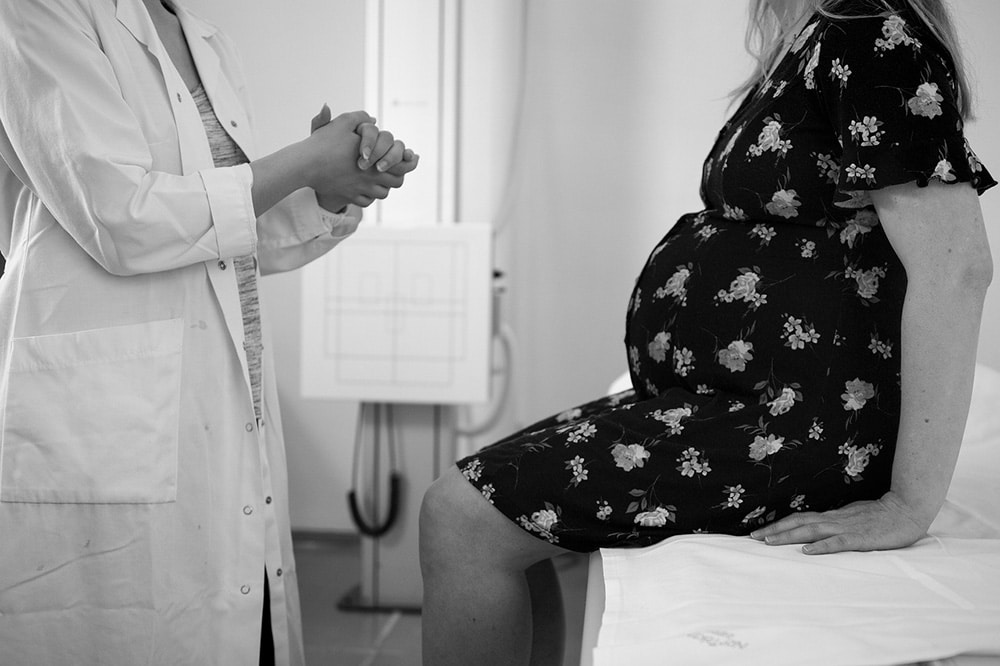The medical term for a pregnant woman’s water breaking is the rupture of membranes. It’s a natural part of bringing a baby into this world. However, if it happens too soon, it can be dangerous for the mother and baby.
Yes, a baby can be injured by a premature rupture of membranes. Keep reading to learn more about why there may be a premature rupture of membranes and what impact this might have on a fetus or newborn born here in Philadelphia.
What Is a Premature Rupture of Membranes?
During pregnancy, the amniotic sac holds the developing baby and amniotic fluid. This sac normally bursts in the early stages of labor. According to the Children’s Hospital of Philadelphia, the premature rupture of membranes (PROM) is a condition defined by the amniotic sac bursting more than one hour before the mother begins labor.
Prolonged PROM is when this process occurs 18 hours or more before labor. Premature rupture of membranes before 37 weeks of gestation is known as preterm PROM (pPROM). A report published by the National Institutes for Health details how pPROM affects 3% of pregnant women and causes 30-40% of premature deliveries. All three of these conditions are associated with an increased risk of injury to the baby.
Causes and Risk Factors for Premature Rupture of Membranes
Several risk factors have been known to lead to premature rupture of membranes. The following are potential known causes and risk factors of PROM:
- Preterm PROM (pPROM) in prior pregnancies
- Prior preterm labor and delivery
- Infections such as urinary tract infections (UTIs), bacterial vaginosis (BV), herpes simplex virus (HSV), group B strep (GBS), sepsis, chorioamnionitis, and other uterine infections
- Vaginal bleeding
- Smoking during pregnancy
- Pregnant mothers with poor diets
- Prior cervical surgeries
- Prior or current overly stretched uterus from too much amniotic fluid (polyhydramnios) or multiple fetuses
- Umbilical cord prolapse
- Uterine trauma
- Untreated sexually transmitted diseases
Symptoms of Premature Rupture of Membranes
The most obvious and common sign of ruptured membranes is amniotic fluid leaking from the vagina. This can occur in small amounts over time or a lot at once.
Philadelphia, PA doctors may be able to detect and prevent PROM by addressing underlying infections. Signs of infection that could lead to PROM include the following:
- Increased heart rate and temperature in the mother
- Increased fetal heart rate
- Uterine pain or tenderness
- Contractions
- Increased white blood cell counts
A pregnant woman experiencing any of these symptoms should contact her doctor for guidance.
Complications Associated With the Premature Rupture of Membranes
Doctors in Philadelphia can diagnose PROM by sampling fluids, performing ultrasounds, and analyzing the mother’s health history. The reason it’s so important to detect and treat PROM is that it can lead to severe complications. Preterm babies are especially susceptible to the negative effects of premature rupture of membranes and may suffer the following potential complications:
- Infections such as chorioamnionitis, meningitis, and sepsis
- Umbilical cord compression
- An infant’s wrongful death
- Respiratory complications
- Overventilation injuries
- Prolapsed umbilical cord
- Infant underdevelopment
- Placental abruption
Treatments for PROM
Doctors should act efficiently and carefully in the diagnosis and treatment of PROM. If treated correctly, the mother and baby can come out of the experience healthy and safe. The following are potential treatments for the premature rupture of membranes:
- Induction of labor
- Delivery delay if it’s preterm
- Antibiotics administration to prevent infection
- Cesarean section (C-section) delivery
- Close monitoring for signs of distress
Premature Rupture of Membranes and Medical Malpractice
Unfortunately, a negligent medical team can lead to the injury of a baby. Premature rupture of membranes leaves the mother and baby vulnerable to suffering harm, some of which may warrant the filing of a medical malpractice lawsuit.
Signs of medical malpractice related to PROM that may justify the filing of a medical malpractice lawsuit include a health care professional’s failure to:
- Diagnose an infection or sexually transmitted disease that led to PROM
- Properly treat a newborn in distress
- Diagnose PROM and render proper medical care
- Administer antibiotics to treat maternal or fetal infection
- Order a Cesarean section promptly
- Administer corticosteroids to accelerate the development of the baby’s lungs in preparation for an early delivery
- Diagnose fetal distress caused by a prolapsed umbilical cord
Your Legal Options if You or Your Baby Suffered Harm Stemming From the Premature Rupture of Membranes
Medical professionals are responsible for preserving and protecting the health of both you and your baby. It’s important to hold health care professionals accountable for their negligence if you or a loved one suffered from an injury due to PROM or some other type of medical negligence.
Pennsylvania law may entitle you to compensation for your losses. Our medical malpractice attorneys at Shrager, Sachs, & Blanco can help you determine if that’s the case. So, contact us to schedule a no-obligation free initial consultation today to discuss what happened to you here in the Philadelphia area and your legal rights in it.









